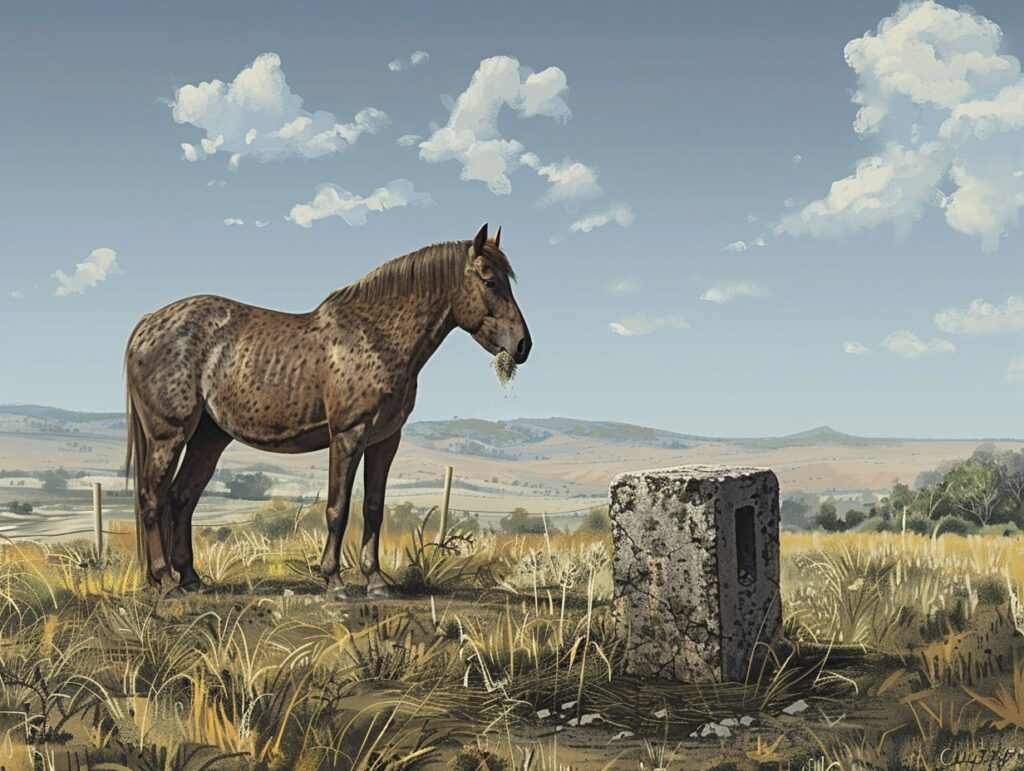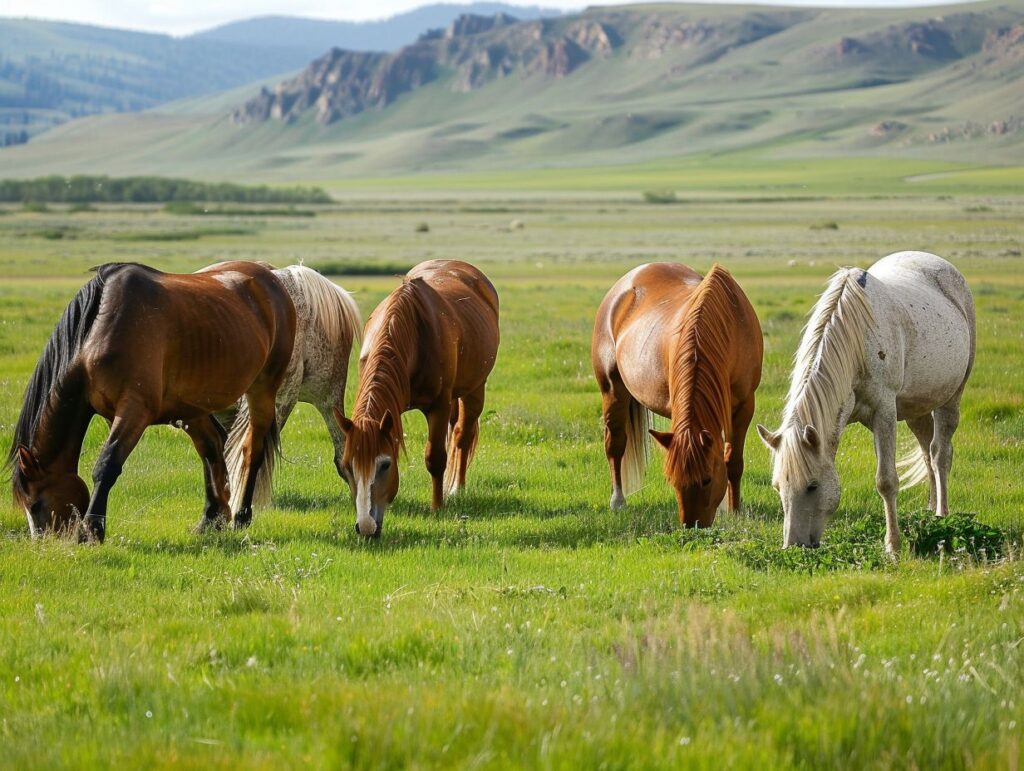Horses, like any other living being, have specific dietary requirements to stay healthy and strong.
In this exploration, we will delve into the essential minerals that horses need in their daily diet to maintain optimal health. From calcium to selenium, each mineral plays a crucial role in supporting the overall well-being of these majestic animals.
Understanding the importance of these minerals and where to find them in a horse’s diet is crucial to ensuring that your equine companion is receiving the nutrients they need to thrive. Let us delve into the world of mineral requirements for horses and how you can effectively meet them.
Understanding Mineral Requirements for Horses
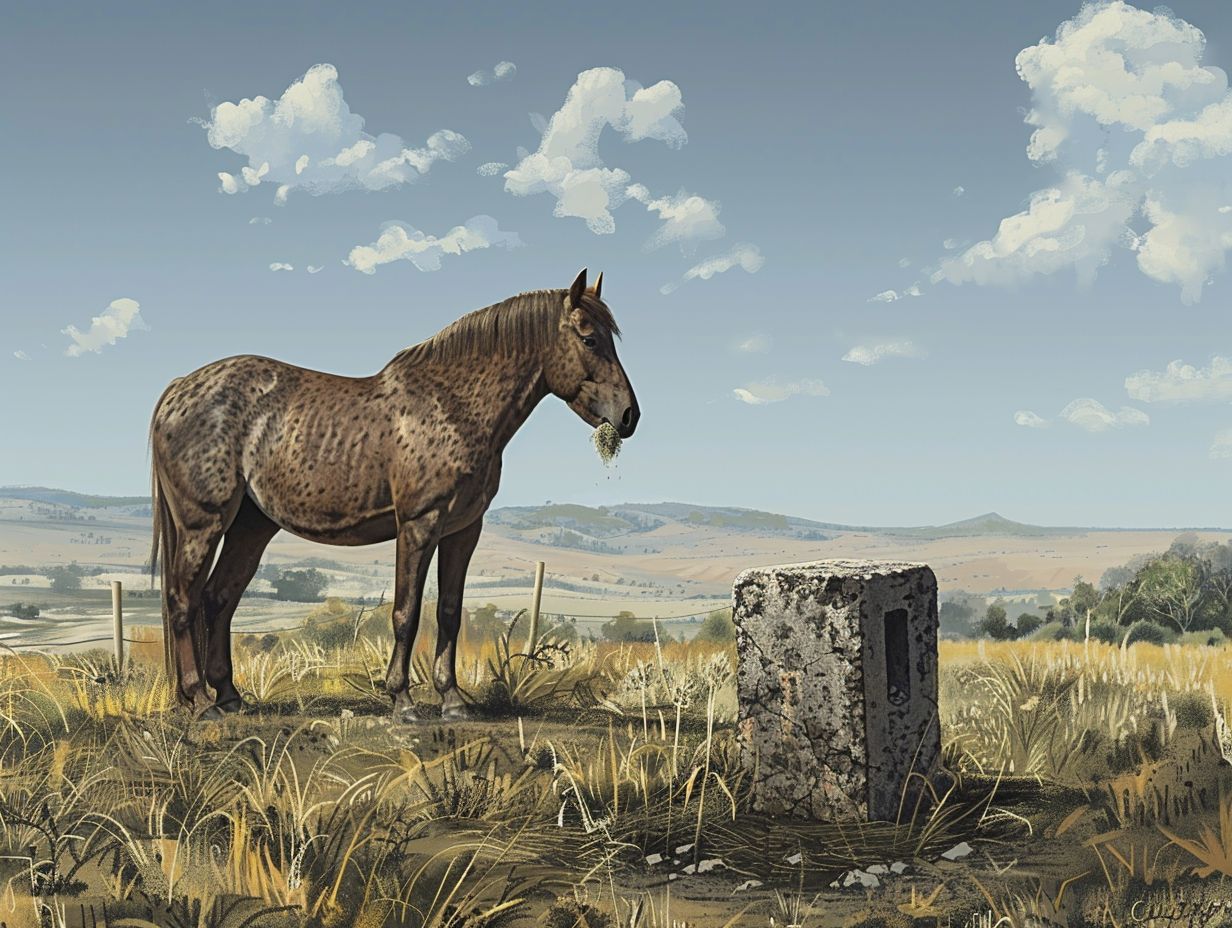
Understanding mineral requirements for horses is crucial for ensuring that they receive the essential daily nutrients needed to meet their dietary needs.
The Importance of Minerals in a Horse’s Diet
Minerals play a crucial role in a horse’s diet, influencing overall health, nutrient absorption, metabolic processes, and the maintenance of balance to prevent deficiencies. They are vital for the structural and functional integrity of bones, teeth, and muscles in horses, contributing significantly to their growth and development.
Minerals such as calcium, phosphorus, magnesium, and potassium are essential for maintaining proper electrolyte balance, nerve function, and muscle contraction. Inadequate mineral intake can lead to issues like poor bone density, muscle weakness, or impaired performance in horses. Therefore, ensuring a well-balanced diet rich in essential minerals is imperative for optimal health and performance in these magnificent animals.
Essential Minerals for Horses
Calcium, phosphorus, magnesium, potassium, sodium, iron, zinc, copper, selenium, iodine, and manganese are crucial minerals that are vital for maintaining optimal health and well-being in horses.
Calcium
You need to understand that calcium is essential for maintaining strong bone health and supporting crucial muscle functions in horses. It is a key player in bone development, providing the necessary structural integrity for sturdy skeletal support. Calcium is vital for muscle contraction, nerve transmission, and overall enzymatic function within the equine body. Without a sufficient supply of calcium, horses may be susceptible to conditions such as osteoporosis or muscle weakness. Ensuring that horses have a balanced diet rich in calcium is fundamental for promoting optimal health and performance, enabling them to move with strength, agility, and vitality.
Magnesium
Magnesium is critical for nerve function, muscle contraction, and metabolic processes in horses, playing a vital role in maintaining overall health. This essential mineral is involved in over 300 enzymatic reactions within the equine body, including energy production, protein synthesis, and nerve transmission.
Additionally, magnesium helps regulate heart rhythm and supports proper immune function. Deficiencies in magnesium can lead to issues such as muscle tremors, decreased performance, and behavioral changes in horses. Ensuring adequate magnesium intake through high-quality forage, supplements, or specially formulated feeds is crucial for promoting optimal health and performance in these majestic animals.
Phosphorus
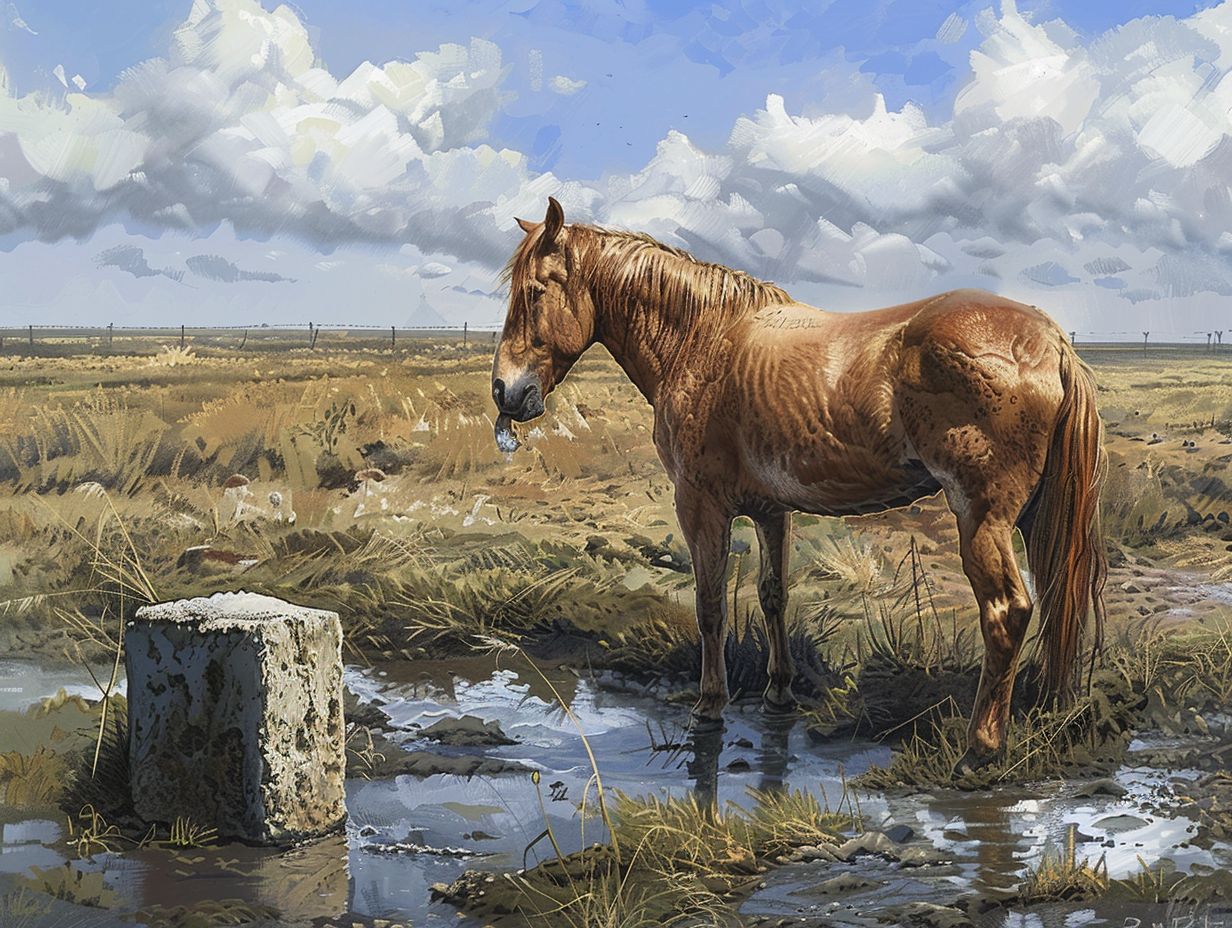
Phosphorus is vital for maintaining bone health, regulating metabolism, and providing energy for horses to carry out their daily activities.
As a critical mineral in horse nutrition, phosphorus plays a key role in ensuring proper bone strength and development. Aside from supporting overall skeletal health, phosphorus is involved in various metabolic processes crucial for growth and maintenance. By aiding in energy production through ATP synthesis, phosphorus powers muscular activity, including the contraction and relaxation of muscles during exercise.
To ensure optimal health and performance, it is imperative to balance phosphorus intake with other minerals such as calcium to facilitate proper absorption and utilization in a horse’s diet.
Potassium
Potassium is essential for maintaining electrolyte balance, supporting muscle function, and ensuring proper hydration in horses.
It plays a crucial role in nerve transmission and muscle contraction, which are vital for overall performance and health in horses. Potassium collaborates with other electrolytes like sodium and chloride to maintain fluid balance within the cells. Sufficient potassium levels are especially critical for horses involved in strenuous activities, as they lose electrolytes through sweat. By incorporating a well-balanced diet rich in potassium, horse owners can mitigate problems such as muscle cramping, fatigue, and dehydration.
Sodium
Ensuring that horses receive an adequate amount of sodium in their diets is crucial for their overall health and performance. Sodium plays a vital role in maintaining electrolyte balance, supporting nerve function, and regulating hydration levels in horses.
Electrolytes, including sodium, are essential for maintaining the proper balance of fluids within the horse’s body, which is crucial for various bodily functions. Nerve transmission relies on the presence of sodium ions to effectively send signals, enabling proper muscle contraction and coordination. Adequate sodium intake also helps horses stay hydrated by facilitating water retention and maintaining proper fluid balance within the cells.
Iron
Iron is essential for blood production, oxygen transport, and metabolic processes in horses, ensuring optimal health and performance. It plays a crucial role in the formation of hemoglobin, the protein responsible for carrying oxygen from the lungs to tissues throughout the body. Without sufficient iron, horses may experience fatigue, weakness, and decreased performance due to inadequate oxygen delivery.
Iron is necessary for proper energy metabolism, ensuring that nutrients are effectively converted into energy for muscle function and overall vitality. Therefore, incorporating iron-rich sources in a horse’s diet is vital for supporting their overall well-being and maintaining optimal physiological functions.
Zinc
Zinc is essential for supporting the immune system, promoting wound healing, and enhancing coat quality in horses, thereby contributing to their overall well-being.
A deficiency in zinc can result in compromised immunity, delayed tissue repair, and a lackluster coat appearance in horses. This crucial mineral is involved in numerous enzymatic reactions that are vital for a horse’s health. It is imperative to ensure that horses receive sufficient levels of zinc in their diet to maintain their overall well-being. By incorporating zinc-rich sources into a horse’s feed regimen, owners can assist in ensuring the optimal health and performance of their equine companions.
Copper
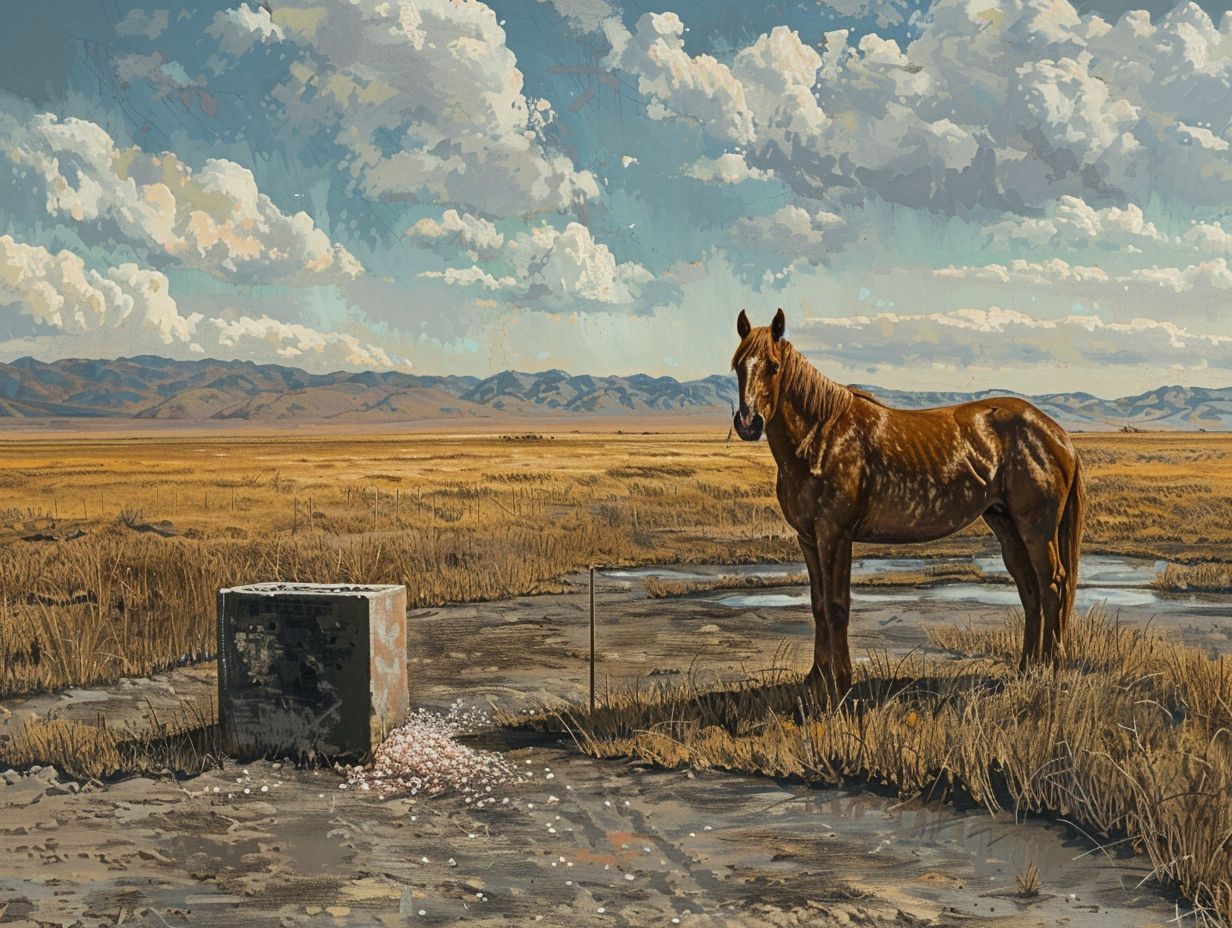
You need to ensure that your horses receive an adequate amount of copper in their diet. Copper plays a vital role in maintaining the quality of their coat, supporting bone development, and promoting joint health. It is crucial for the formation of connective tissues and collagen production, which are essential for strong hooves and preventing joint issues in horses.
Adequate intake of copper is also associated with improved red blood cell formation, facilitating oxygen transportation throughout the body. Additionally, copper acts as a potent antioxidant, helping to counteract harmful free radicals that can lead to cell damage. Maintaining the proper balance of copper in your horse’s diet is essential for their overall health and performance.
Selenium
Selenium serves as a potent antioxidant, supporting the immune system and improving muscle function in horses to sustain their health and performance. This vital mineral plays an essential role in shielding cells from damage inflicted by free radicals, thereby mitigating oxidative stress and inflammation within the body.
Selenium also bolsters the immune system by facilitating the production of white blood cells, pivotal in combatting infections and illnesses. Its involvement in regulating muscle activity and development promotes optimal muscle function and performance during physical exertion. A selenium deficiency in horses can result in problems such as muscle weakness, fatigue, and a compromised immune response.
Iodine
Iodine is essential for thyroid function, metabolic regulation, and growth processes in horses, ensuring proper development and overall health.
Thyroid hormones, which rely on iodine for production, play a vital role in maintaining a horse’s metabolism and energy levels. Inadequate iodine levels can lead to issues like weight fluctuation, fatigue, and poor coat condition in horses. For young horses, iodine is crucial for regulating growth, supporting skeletal development, and muscle growth. It is imperative to ensure that horses receive adequate iodine in their diets to promote their overall well-being and performance.
Manganese
Manganese is essential for bone health, cartilage formation, and acting as an antioxidant in horses, supporting their skeletal structure and overall well-being. It plays a crucial role in the production of proteoglycans, which are essential components in maintaining healthy cartilage, aiding in the prevention of joint disorders and promoting flexibility.
Manganese acts as a cofactor for various enzymes involved in antioxidant defense mechanisms, helping to reduce oxidative stress and support the immune system in horses. Ensuring a proper balance of manganese in the equine diet is vital for optimal bone strength, joint function, and overall health maintenance.
Meeting Daily Mineral Requirements
Meeting the daily mineral requirements of horses involves ensuring a balanced diet that incorporates essential minerals sourced from forage, pasture, and appropriate supplementation to promote their overall health and well-being.
Sources of Minerals in a Horse’s Diet
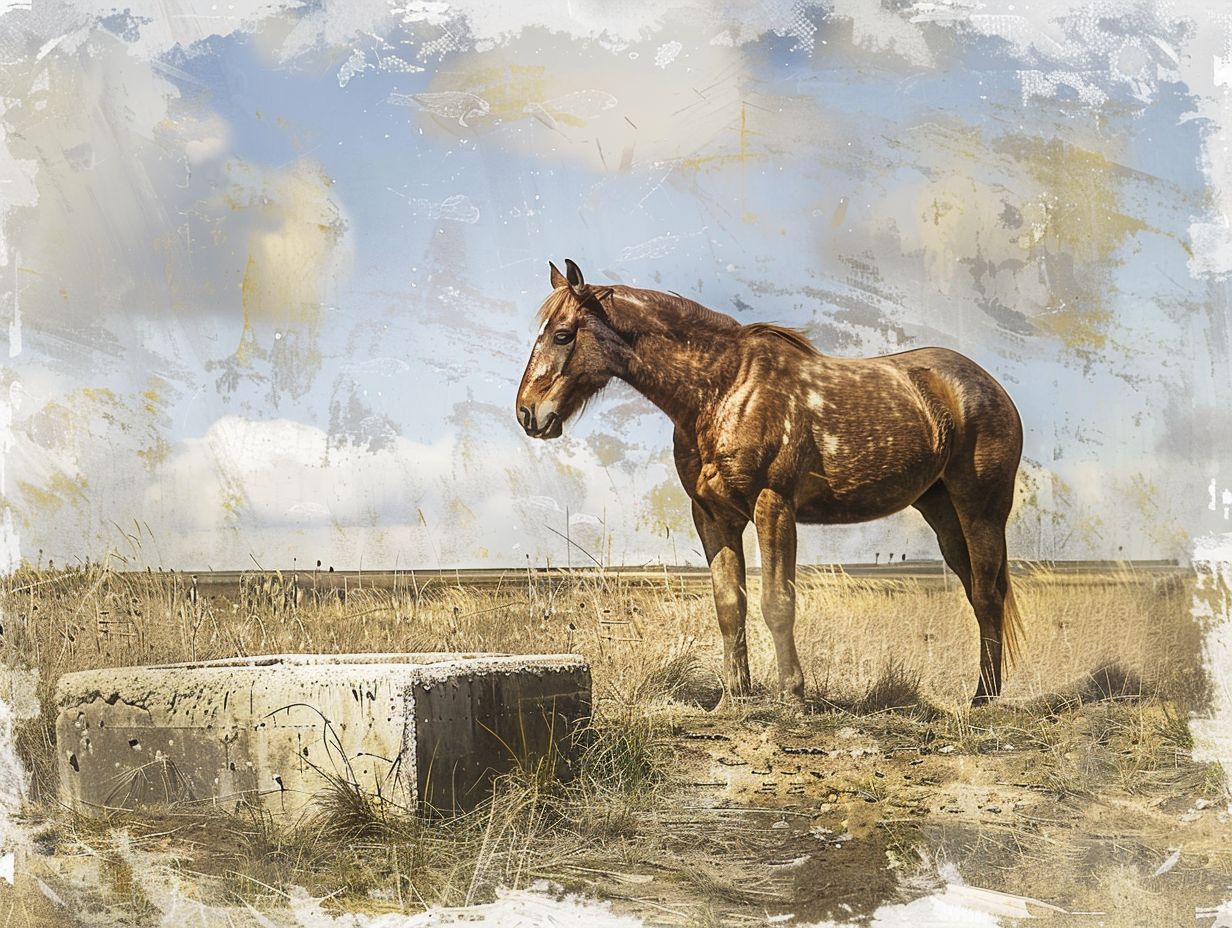
Minerals in a horse’s diet can be sourced from various sources, including salt, water, and specific feed components, facilitating optimal absorption and digestion for their health benefits.
Salt plays a crucial role in maintaining electrolyte balance in horses, which is essential for nerve function and muscle activity. Water, a vital component in equine nutrition, aids in the transportation of minerals throughout the body and supports overall hydration.
Digestion in horses is key to breaking down feed components to release minerals for absorption in the bloodstream, where they contribute to functions like bone strength and enzyme activity.
Frequently Asked Questions
What minerals do Horses need daily?
Horses need a variety of minerals on a daily basis in order to maintain optimal health and performance. These minerals include calcium, phosphorus, magnesium, potassium, sodium, and iron.
Why do Horses need calcium in their daily diet?
Calcium is essential for strong bones, teeth, and proper muscle function in horses. It also plays a role in blood clotting and nerve function.
How does phosphorus benefit Horses?
Phosphorus is important for energy production, bone and tooth formation, and proper cell function in horses. It also helps regulate the acid-base balance in the body.
Do Horses need magnesium in their daily diet?
Yes, magnesium is necessary for muscle and nerve function, as well as for maintaining healthy bones and teeth in horses. It also plays a role in energy metabolism.
Why is potassium important for Horses?
Potassium helps regulate fluid balance, nerve and muscle function, and is involved in the metabolism of carbohydrates and proteins in horses.
What is the role of iron in a Horse’s daily mineral intake?
Iron is crucial for the production of red blood cells and transporting oxygen throughout the body in horses. It also plays a part in immune function and energy metabolism.
